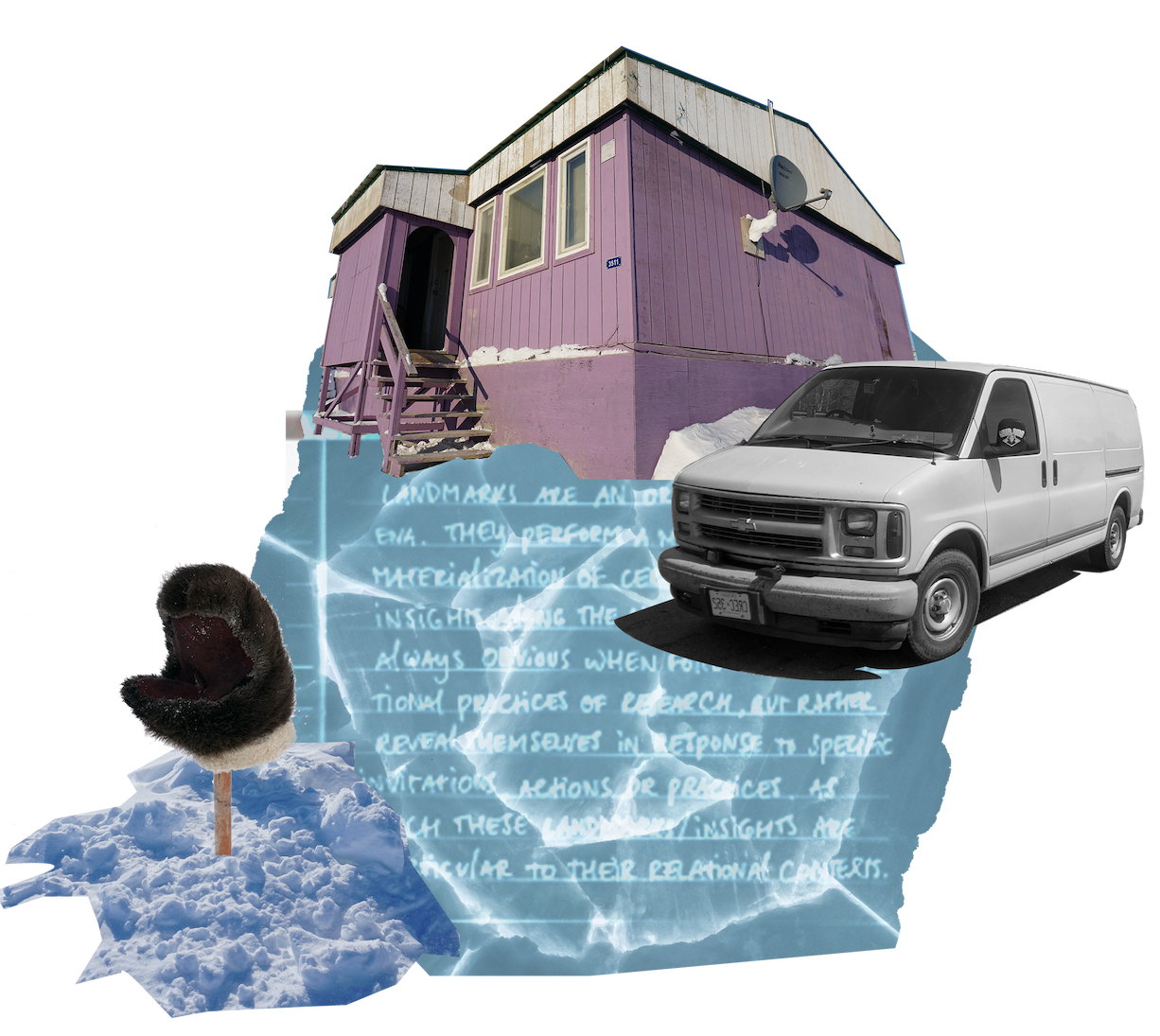Song, Dance and Oral Storytelling: Difference between revisions
No edit summary |
No edit summary |
||
| (5 intermediate revisions by the same user not shown) | |||
| Line 1: | Line 1: | ||
[[File:Landmark.png|thumb]] | [[File:Landmark small.png|thumb]] | ||
As Tuppittia Qitsualik, who started interpretting for the Bearwatch project later in the project explained to me. Language emerges from the land, and in turn keeps knowledge of the land alive. | |||
<div class="next_choice">"(…) you know, the traditional knowledge that are in our Inuk words, in our language. Those polar bear hunting words aren't used anymore, eh, like, and Siksik, he knows it. That, I think that's the point that, that really is critical. | |||
<div class="next_choice">(…) you know, the traditional knowledge that are in our Inuk words, in our language. Those polar bear hunting words aren't used anymore, eh, like, and Siksik, he knows it. That, I think that's the point that, that really is critical. | |||
That, that knowledge, Siksik’s knowledge, Qirqut’s knowledge, the words that they used as hunter men, their language is going to be gone once they go, cause, and they don't use it. There has to be some forum for... That they can go on an actual polar bear hunt or something so that they could use those words. | That, that knowledge, Siksik’s knowledge, Qirqut’s knowledge, the words that they used as hunter men, their language is going to be gone once they go, cause, and they don't use it. There has to be some forum for... That they can go on an actual polar bear hunt or something so that they could use those words. | ||
Specific words. Yeah, like those terms and attitudes and principles, you know. Yeah, yeah, yeah. Yeah, and the knowledge just by, especially when they said that you could tell by the DNA how old it is, whether it's female or what it ate. My father could tell by the footprint itself, like how long ago, how many hours ago, just about. | Specific words. Yeah, like those terms and attitudes and principles, you know. Yeah, yeah, yeah. Yeah, and the knowledge just by, especially when they said that you could tell by the DNA how old it is, whether it's female or what it ate. My father could tell by the footprint itself, like how long ago, how many hours ago, just about. | ||
(…) It makes no sense to sit on the chair and just recite those words."</div> | (…) It makes no sense to sit on the chair and just recite those words.(Tuppittia Qitsualik)" | ||
You are '''"invited"''' to join me as I ask George to explain me more about how this connection between knowing and the land, while he takes me out to check the breathing holes of seals he is monitoring.</div> | |||
<span class="redirective invitation link" data-page-title="Checking Seal Dens" data-section-id="0" data-encounter-type="invitation">[[Checking Seal Dens|Invitation: Checking Seal Dens]]</span> | |||
Latest revision as of 12:43, 18 July 2025

As Tuppittia Qitsualik, who started interpretting for the Bearwatch project later in the project explained to me. Language emerges from the land, and in turn keeps knowledge of the land alive.
That, that knowledge, Siksik’s knowledge, Qirqut’s knowledge, the words that they used as hunter men, their language is going to be gone once they go, cause, and they don't use it. There has to be some forum for... That they can go on an actual polar bear hunt or something so that they could use those words. Specific words. Yeah, like those terms and attitudes and principles, you know. Yeah, yeah, yeah. Yeah, and the knowledge just by, especially when they said that you could tell by the DNA how old it is, whether it's female or what it ate. My father could tell by the footprint itself, like how long ago, how many hours ago, just about.
(…) It makes no sense to sit on the chair and just recite those words.(Tuppittia Qitsualik)"
You are "invited" to join me as I ask George to explain me more about how this connection between knowing and the land, while he takes me out to check the breathing holes of seals he is monitoring.